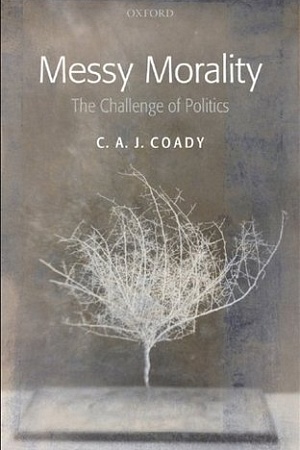Unholy Fury: Whitlam and Nixon at War
Melbourne University Press, $39.99 pb, 378 pp, 9780522868203
Unholy Fury: Whitlam and Nixon at War by James Curran
‘I have never met an Aussie I didn’t like.’ The half-compliment was the best President Richard Nixon could muster during a restrained exchange with Prime Minister Gough Whitlam in the Oval Office in July 1973. After the turbulent build-up to this meeting, rivetingly conveyed in James Curran’s history Unholy Fury: Whitlam and Nixon at War, one almost expects Nixon to add the disclaimer ‘until now’.
The eight months between Whitlam’s election and his brief meeting with Nixon at the White House were some of the most tumultuous in Australian diplomatic history. In Unholy Fury, Curran renders the alliance’s downward spiral in intoxicating detail, drawing upon recently declassified material to reveal just how close the central pillar of Australian foreign policy – the Australia–America alliance – came to collapsing.
The rift began with a letter. In the wake of Labor’s electoral victory, on 21 December 1972 Whitlam penned a note to the White House in which he expressed ‘grave concern’ over the US decision to bomb Hanoi and Haiphong and appealed to the United States and North Vietnam as equals, urging them ‘to return to serious negotiations’. These were strong words from a small power to a superpower, and they were not received kindly. ‘Whitlam had done the unthinkable,’ Curran explains. ‘He had put the United States on the same level as its communist enemy.’ Nixon’s National Security Advisor, Henry Kissinger, described the letter as ‘an absolute outrage’ and ‘a cheap little manoeuvre’. Nixon agreed: it was ‘one hell of a thing’ to do. They decided to ‘freeze’ Whitlam ‘for a few months’ so that he would ‘get the message’.
Continue reading for only $10 per month. Subscribe and gain full access to Australian Book Review. Already a subscriber? Sign in. If you need assistance, feel free to contact us.













Leave a comment
If you are an ABR subscriber, you will need to sign in to post a comment.
If you have forgotten your sign in details, or if you receive an error message when trying to submit your comment, please email your comment (and the name of the article to which it relates) to ABR Comments. We will review your comment and, subject to approval, we will post it under your name.
Please note that all comments must be approved by ABR and comply with our Terms & Conditions.